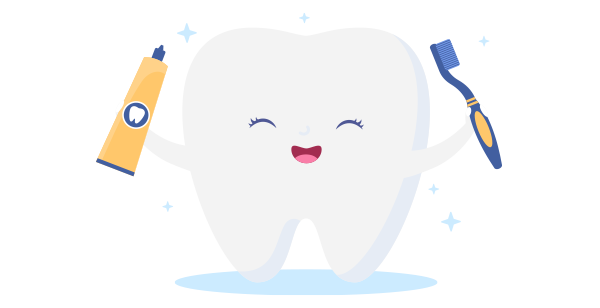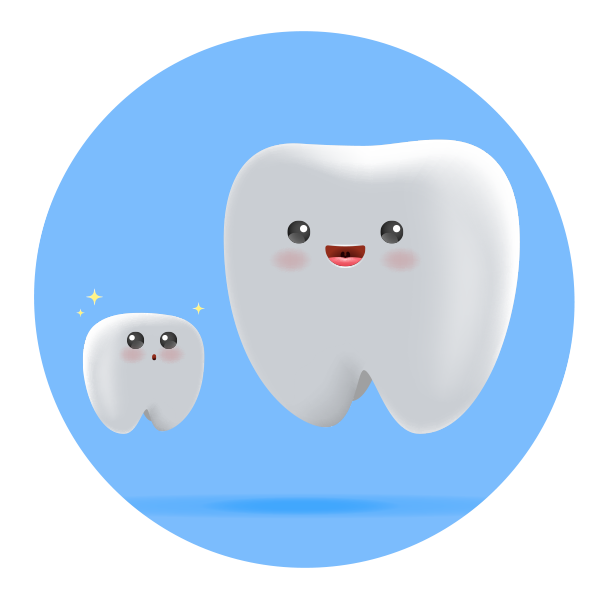At Staveley Dental Care we believe that regular dental examinations play an important part in maintaining good oral health.
Our Dental Health Check is a comprehensive check that includes examination of your teeth, gums and surrounding tissues to enable your dentist to provide you with an accurate assessment of the health of your mouth. If required, x-rays may be recommended during these visits. Using the information collected, your dentist can advise the time frame for repeat dental health checks. If treatment is advised then the patient will be provided with a written treatment plan with costs.
Our treatment is individually tailored to suit your needs and guided by our philosophy of minimally invasive dentistry and prevention. Our aim is to understand your dental needs, to treat existing problems as appropriate, and provide the highest quality ongoing care and management to maintain beautiful teeth for life;

We are happy to see young children of all ages to familiarise them with their dentist and the practice and to establish good habits for their future dental health. Our aim is to ensure that children view their visits to the dentist as a happy and positive experience.
It is our aim that every child in this practice should have a sound, healthy, beautiful smile and be treated in a caring, gentle environment where a visit to the dentist is something to look forward to.
Prevention of dental disease in children should begin at the moment the first tooth appears. As soon as the teeth are in the mouth, they should be cleaned gently with a soft brush and a tiny amount of children’s fluoride containing toothpaste. Children are highly susceptible to dental decay and the aim to deliver a child into adulthood with sound teeth requires active prevention from the outset.
Our Dental Health Check is a comprehensive check that includes examination of your teeth, gums and surrounding tissues to enable your dentist to provide you with an accurate assessment of the health of your mouth. If required, x-rays may be recommended during these visits. Using the information collected, your dentist can advise the time frame for repeat dental health checks. If treatment is advised then the patient will be provided with a written treatment plan with costs.
Our treatment is individually tailored to suit your needs and guided by our philosophy of minimally invasive dentistry and prevention. Our aim is to understand your dental needs, to treat existing problems as appropriate, and provide the highest quality ongoing care and management to maintain beautiful teeth for life;

We are happy to see young children of all ages to familiarise them with their dentist and the practice and to establish good habits for their future dental health. Our aim is to ensure that children view their visits to the dentist as a happy and positive experience.
It is our aim that every child in this practice should have a sound, healthy, beautiful smile and be treated in a caring, gentle environment where a visit to the dentist is something to look forward to.
Prevention of dental disease in children should begin at the moment the first tooth appears. As soon as the teeth are in the mouth, they should be cleaned gently with a soft brush and a tiny amount of children’s fluoride containing toothpaste. Children are highly susceptible to dental decay and the aim to deliver a child into adulthood with sound teeth requires active prevention from the outset.

Regular visits to the dentist are essential in the identification and treatment of any problems at an early stage, whether caused by disease or development. We recommend that all children from the age of 2 yrs should attend for examination every 6 months. From an early age we can guide parents with regard to good cleaning and dietary habits. As the child grows, they gradually take responsibility for their own dental hygiene.

It’s important to encourage your child to brush at least twice a day, after breakfast and before bed, however it’s great to get children into the habit of brushing after every meal. If you’re the parent of a young child we recommend that you supervise and support your child’s teeth brushing so that they learn how to clean their teeth properly themselves. Though it can still be worth parents doing a final brush to make sure hard to reach teeth are also cleaned.
To help you and your child develop the best dental routine we can offer advice on important factors such as the correct toothpaste and toothbrush, the best brushing techniques and healthy eating habits.
PERIODONTICS (Gum Treatment)
Periodontal diseases are infections of the gums, which gradually destroy the support of your natural teeth.Dental plaque is the primary cause of gum disease in genetically susceptible individuals. Bacteria found in plaque produce toxins or poisons, which irritate the gums. They may cause them to turn red, swell and bleed easily.
If this irritation is prolonged, the gums separate from the teeth, causing pockets (spaces) to form. Plaque can also harden into a rough, porous substance known as calculus (or tartar). This can periodontal diseases progress, the supporting gum tissue and bone that holds teeth occur both above and below the gum line. As in place deteriorate. If left untreated, this leads to tooth loss.
Early diagnosis and treatment of gum disease is vital to prevent tooth loss. All periodontal techniques are founded on the basis of excellent and ongoing prevention if they are to be successful.
The management of periodontal problems, which are often both genetically and environmentally determined is critical if damage is to be minimised through life and teeth are to be retained long-term.
ENDODONTICS (Root Canal Treatment)
Root canal treatment (also called endodontics) is needed when the blood or nerve supply of the tooth (known as the pulp) is infected through decay or injury.Root canal treatment becomes necessary when the pulp becomes inflamed or dies. With effective local anaesthetic, root canal treatment is a painless procedure. It is a very important procedure as it preserves the tooth saving it from extraction.
In some cases root canal treatment can be done in one session but usually takes two appointments. How long your treatment takes will depend on how severe your dental problem is and the type of tooth in question. If your affected tooth is a molar with two or three root canals, the treatment may be more difficult and involve more sessions.
Your treated and restored tooth/teeth can last a lifetime with proper care. Because tooth decay can still occur in treated teeth, good oral hygiene and regular dental exams are necessary to prevent further problems.
As there is no longer a pulp keeping the tooth alive, root-treated teeth can become brittle and are more prone to fracture. This is an important consideration when deciding whether to crown or fill a tooth after root canal treatment.
Crown & Bridgework
Missing teeth impact on your ability to chew and often alter the way you look, giving your cheeks a sunken appearance. Our dentists will do their utmost to prevent you losing a tooth, and will explain your options and tailor the best treatment plan for you.Sometimes a tooth can no longer be filled, so a crown is required, or it has to be removed (and a bridge or implant is fitted).
CROWNS
Crowns become necessary when there is insufficient tooth structure to support a filling. Teeth that are severely broken down from decay or fracture can be fully restored to proper appearance and function with a crown restoration.
Crowns have traditionally been fabricated using porcelain bonded to metal. This can lead to a dark line appearing over time at the gum level around the crown. To avoid this, all ceramic restorations with no metal can be used. We generally use this type of crown when aesthetics are important (for example at the front of the mouth or where teeth are visible when you smile)
BRIDGEWORK
They are an ideal alternative to partial dentures and offer a permanent solution.
Bridges can be made of porcelain bonded to precious metal however the newer materials are now much more popular. There is also an alternative ‘adhesive’ bridge that is less intrusive but can only be used in certain situations.
We will be happy to advise you further during your examination.
Dentures
At Staveley Dental Care we offer the options of partial and full dentures.Our range of denture services includes:
Acrylic dentures
Cobalt chrome partial dentures
Full dentures
Implant retained dentures
SMILE MAKEOVERS
Smile makeovers use porcelain veneers to rejuvenate a smile. Porcelain veneers are a strong and natural looking way to change the shape, colour and alignment of the teeth.
Veneers can be described like false fingernails and are thin pieces of porcelain which are bonded to the front surface of your own teeth.
Porcelain veneers can be used to improve the aesthetic appearance of the teeth, to close gaps between teeth, or to address the problems of short or small teeth.
Veneers can also be used to provide more support for the upper lip and reduce the appearance of lines and wrinkles in the mouth area. In that case veneers are made slightly thicker at the gum level on the upper teeth.
The use of Porcelain Veneers is usually minimally invasive to the natural tooth and provided a good oral hygiene routine is followed after your smile makeover they are a long-term solution to a number of problems.
If you are looking to improve your smile contact Staveley Dental Care for a consultation at 01246 471 047


